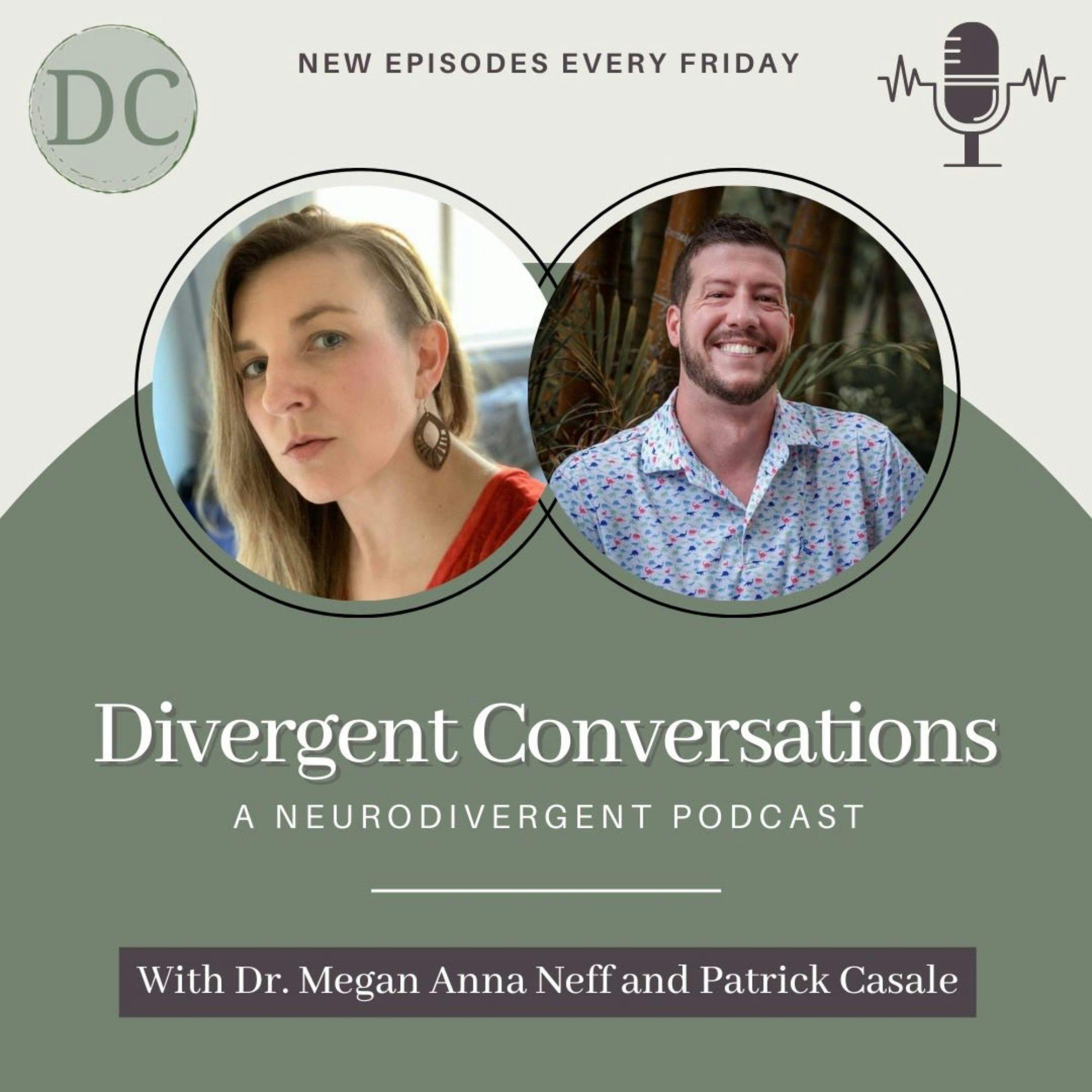Episode 21: Taking Up Space: Navigating Social Interactions as a Neurodivergent Individual
Description
Taking up space and asking for what you need in social settings and relationships can be particularly challenging for Autistic individuals, especially before Autistic diagnosis or discovery.
It is not uncommon for many Autistic people to respond strongly to rejection, and we often work hard to "earn" a place in groups where we are allowed to safely exist by being helpful to others or blending in by dressing or acting in a way that seems "normal" or "acceptable."
Maintaining these actions while constantly paying attention to details can be a painful and exhausting experience.
In this episode, Patrick Casale and Dr. Megan Anna Neff, two AuDHD mental health professionals, discuss the concept of taking up social and emotional space in interactions with others, what it felt like for them to balance efforts to belong with sensory overwhelm while they were still masking before Autism discovery, and the benefits of incorporating new ways of socializing and parallel play that honor their needs as autistic humans.
Top 3 reasons to listen to the entire episode:
Understand the importance of Autistic individuals giving themselves permission to socialize in ways that feel comfortable and authentic to them.
Hear about Patrick and Dr. Neff's struggles with taking up space and fully expressing themselves, as well as the challenges of showing up authentically in crowded environments, social situations, and even in running their own businesses.
Learn about the importance of parallel play, both in social relationships and in connecting with neurodivergent communities, as well as how it provides a unique sense of comfort and understanding, allowing Autistic individuals to be themselves without the pressure to conform to neurotypical norms.
Communicating our needs and creating spaces where we can be understood and accepted is crucial, especially for neurodivergent individuals.
Finding the balance between self-expression and self-preservation can be a lifelong journey, but by honoring your needs and seeking community with individuals who understand and won't put the pressure of neurotypical values around relationships, it's possible to "create space" for yourself.
More Episodes
ADHD often brings unique challenges with impulsive behaviors which can make everyday interactions and tasks more complex. In an attempt to better understand the ways ADHD can present in daily life, this episode uses the DSM-5 diagnostic criteria as a framework for discussion—this is not an...
Published 06/14/24
Published 06/14/24
ADHD hyperactive traits are often misunderstood and the DSM-5’s portrayal of this type is heavily geared toward children and adolescents, which can make it harder to understand and address in adulthood. In an attempt to better understand the ways ADHD can present in daily life, this episode uses...
Published 06/07/24


